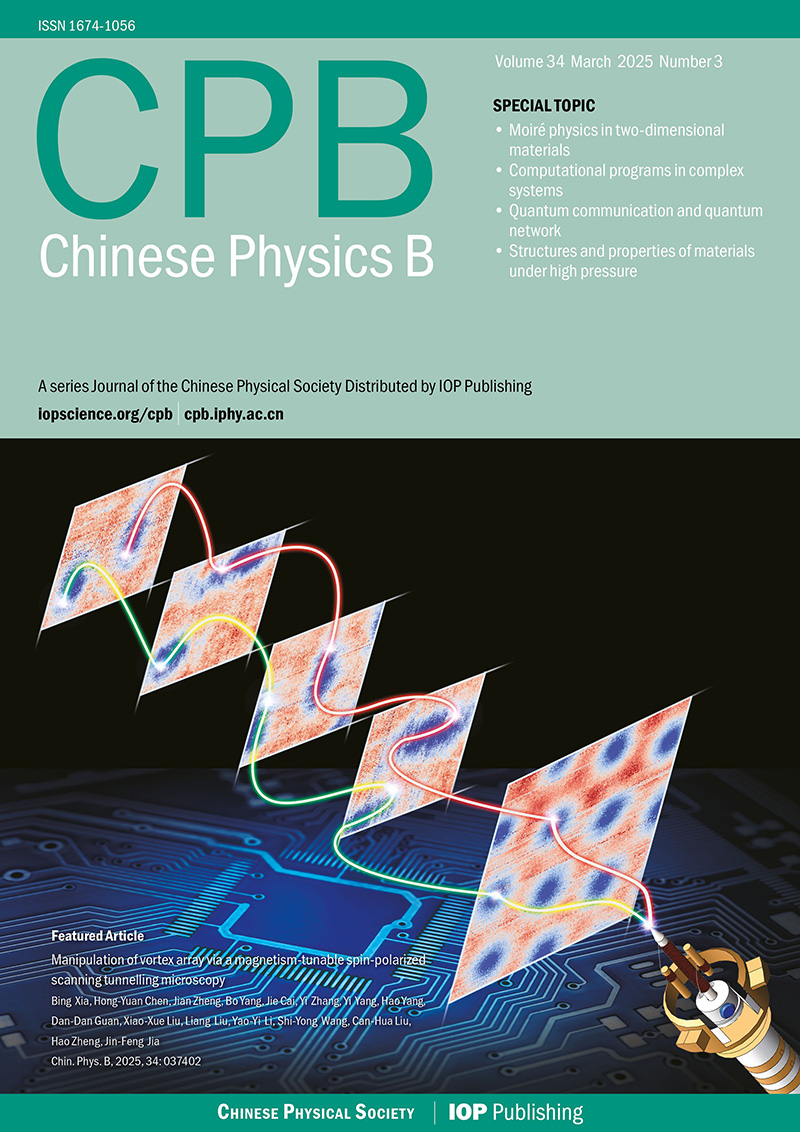Liu Wen-Jie, Chen Han-Wu, Ma Ting-Huai, Li Zhi-Qiang, Liu Zhi-Hao, Hu Wen-Bo. 2009: An efficient deterministic secure quantum communication scheme based on cluster states and identity authentication, Chinese Physics B, 18(10): 4105-4109.
| Citation: |
Liu Wen-Jie, Chen Han-Wu, Ma Ting-Huai, Li Zhi-Qiang, Liu Zhi-Hao, Hu Wen-Bo. 2009: An efficient deterministic secure quantum communication scheme based on cluster states and identity authentication, Chinese Physics B, 18(10): 4105-4109.
|
An efficient deterministic secure quantum communication scheme based on cluster states and identity authentication
-
School of Computer Science and Engineering, Southeast University, Naniing 210096, China; School of Computer and Software, Nanjing University of Information Science and Technology, Nanjing 210044, China
-
School of Computer Science and Engineering, Southeast University, Naniing 210096, China
-
School of Computer and Software, Nanjing University of Information Science and Technology, Nanjing 210044, China
-
School of Computer Science and Engineering, Southeast University, Naniing 210096, China; College of Information Engineering, Yangzhou University, Yangzhou 225009, China
-
Available Online:
30/10/2009
- Fund Project:
the National Natural Science Foundation of China(Grant 60572071 and 60873101)%Natural Science Foundation of Jiangsu Province(Grant BM2006504, BK2007104 and BK2008209)%College Natural Science Foundation of Jiangsu Province(Grant 06KJB520137)
-
-
Abstract
A novel efficient deterministic secure quantum communication scheme based on four-qubit cluster states and single-photon identity authentication is proposed. In this scheme, the two authenticated users can transmit two bits of classical information per cluster state, and its efficiency of the quantum communication is 1/3, which is approximately 1.67 times that of the previous protocol presented by Wang et al [Chin. Phys. Lett. 23 (2006) 2658]. Security analysis shows the present scheme is secure against intercept-resend attack and the impersonator's attack. Furthermore, it is more economic with present-day techniques and easily processed by a one-way quantum computer.
-

-
References
-
-
Access History


 首页
首页 登录
登录 注册
注册






 DownLoad:
DownLoad: